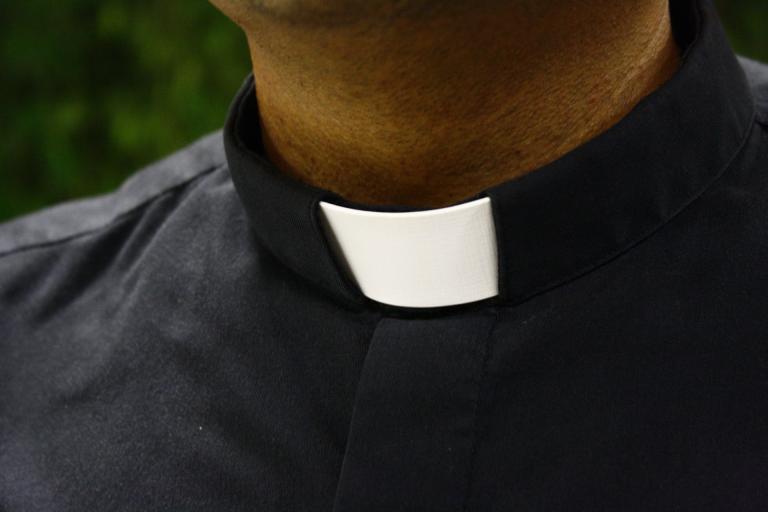Many of my professors, my friends, and my coworkers have asked me that same question, why are you, a Pagan, going to a Christian seminary? Some are genuinely curious, some are baffled, and some are just trying to figure out if they are going to offend me by swearing, drinking, or basically doing anything fun (I wish I was joking). As I write more, I’m sure the question will come up more than once. Here it is, for future reference, an abridged version of why I chose to attend and continue to attend a Christian seminary.

Professional Considerations
I’ve wanted to be a chaplain for years. A professional, board-certified, paid chaplain. There are routes towards this goal that don’t require going to seminary, but they are complicated and don’t promise success. Could I have attended a seminary not accredited by the ATS? Yes, but when it comes to board certification through the Association of Professional Chaplains (APC) I’d have to jump through a lot of bureaucratic hoops in order to have that education recognized. And if the non-accredited school wasn’t highly cognizant of APC requirements and equivalencies or whoever is on the review panel is particularly grumpy it could mean that I’m shut out unless I pursue more education in contexts acceptable to the APC (there is not an appeals process). Just from the viewpoint of what will make this route less rocky as a Pagan, going to an accredited seminary was just far less risky albeit much more expensive. I’m not the most pragmatic person in the world, but this did play some part in my decision.
Care Considerations
This is perhaps the biggest consideration for me. I don’t want to be a Pagan chaplain, I want to be a chaplain who is Pagan. Many of the current chaplains who are Pagan perform their duties on a volunteer basis for hospitals, prisons, or military bases specifically for the benefit of Pagan individuals. Now, I think that is really awesome and something that our community needs a whole lot more of, especially prison chaplaincy (but that’s a post for another time). But it isn’t what I’m called to do. I’m called to minister, listen, and hold space for whoever needs me to do that for them. Considering that a huge bulk of our population is either Christian identified or adheres to some egonovist spirituality that is heavily influenced by our Christian culture, I figured that it is essential I know how to speak their language. If I cannot understand how to offer patients alternatives and ways of meaning making that are decipherable in their theological language I’m not going to be as effective of a chaplain as I could be. If I cannot understand what angle they might be coming at this from, how am I going to empathize and engage in ways that prove meaningful to the patient? Care needed to be placed first, so I resolved to go somewhere I could learn this language, this toolkit.

Knowledge
Perhaps the biggest reason I chose to and continue to attend Iliff is the variety of classes and knowledge that I’m able to soak up. Going in I researched some of the professors and found myself excited by and intimidated by them and the instinct that I was making the right choice has so far proved correct. While the content is often contextualized within Protestant Christian (and sometimes Buddhist!) settings it takes no struggles of thought to think about what the information means in a Pagan context. One of the classes in my first quarter looked at worship services in digital settings and a couple of the other students (who are also Pagan!) immediately brought up examples from Second Life and IRC chats! Which of course sends you into wondering what makes an offering an offering and. . .you get the point. I am continually challenged to think, and grow, and reconsider, simplify some thoughts and make others more nuanced and complex. I’ve had the pleasure of taking classes on diverse topics such as Judaism and gender, how our social location affects our ministry, and on mysticism and activism. Next quarter I’m getting to dive into a class on Afro-diasporic religions! Even the classes on the Bible are fascinating and really just drill down into historical and cultural contexts the texts developed in. It was fascinating in my Hebrew Bible class to track the change in the text from a polytheistic setting where YHVH is the “strongest” deity to one where he is the only deity. I’m incredibly grateful for all the opportunities to learn and grow. Even now, I’m planning an independent study with a wonderful professor and some help from Dr. Christine Hoff Kraemer. I can’t say enough about how excited I am for those opportunities.

It Has Made Me a Better Pagan
Seminary has made me a better Pagan. I’m not saying that going to seminary is going to make everyone a better Pagan or anything like that, but I am saying it has made me a better Pagan. Before starting seminary I just had so many questions, concerns, distresses, that no one could provide any sort of satisfactory answer for. They found satisfying answers, but they were unsatisfying to me. Or worse. Sometimes they were outright destructive to my being able to find any solace in this community. I walked away for a bit. I spent about a year trying out whatever I wanted, going to Episcopal churches, Reform temples, spirituality meetups, whatever struck my fancy. Nothing really worked or helped for more than a couple of months and my understanding of divinity never shifted away from a polytheistic one; I just tried to make space for myself as a polytheist in these settings (spoiler alert: bad idea). So, I resigned myself to being stuck in-between with no satisfactory answers, fluctuating between thinking “this really might work!” and “there is nothing here but sadness”, and a deep feeling that I’m missing something vital.
Then I started seminary to pursue my call and found myself being equipped with the tools to actually grapple with these questions and feel confident in coming to my own conclusions. I don’t need someone to tell me whether the gods are benevolent or not, I can reflect on that using my own experiences and reasoning and come to my own conclusions. No longer am I beholden to relying on what NN person argued or what YY culture believed about the deities; I can reflect, incorporate, and come to my own conclusions and trust those conclusions. And I can revise them if I need to! The gods are the gods and as I come to understand new things my thoughts change, and that’s okay! Getting to that point was hard for me, but getting to it was liberating and I could not be more grateful.
Those are my reasons for attending and continuing to attend seminary. I’m sure things will change over time but if you want more info or opinions, meet me at a bar and buy me a drink. I always love a nice chat.














